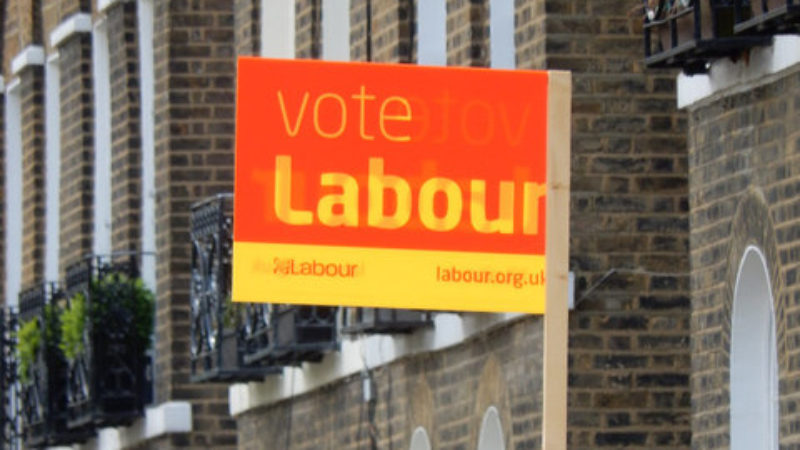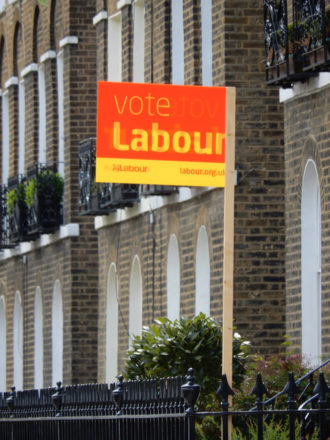

If we are serious about extending political engagement and closing the gap between people and politics, Labour needs to do two things. Firstly, we need to have a coherent and powerful narrative about bringing power closer to the people. And secondly, we need to have a series of practical proposals to make the political process more accessible and relevant to people.
Even though Labour was the party which introduced devolution in Scotland, Wales and Northern Ireland, and recently favoured “permissive” devolution to parts of England, Labour has not made devolution of political power central to its ideology and practise. This needs to change. For Labour, devolution, de-centralisation and political engagement needs to be at the very heart of its democratic socialism.
Labour needs to acknowledge that the old model of capturing the central levers of the economy and society and then introducing change from above, is no longer an appropriate model for social and political change.
Despite the political problems devolution has arguably caused for Labour north of the border, no politician seriously argues that the clock can be turned back. Devolution in the nations of Britain has been a success and it is here to stay; the question is how it can be best developed and extended, and how can the regions and communities of England share in the process.
Making the structures of government more relevant to people should be part and parcel of Labour’s emphasis on democracy. Our idea of the state ought to be about transforming its very nature so that it is about empowering people and giving more responsibility and personal autonomy. This does not imply moving away from the idea that the state has a vital role in creating a fairer and more equal society, but it does mean recognising that the state needs to have a new role in encouraging economic dynamism, administrative efficiency and community development.
At a very practical level, Labour needs to put forward ideas about how to turn its well-meaning vision into practical proposals for change. In the order of things, some of these might appear to be relatively small scale. But that does not make them unimportant.
Recently, I argued that a new body was needed to promote a better understanding amongst the electorate of political parties. I believe that in our current political climate, voters are less inclined to vote according to “class” and the family tradition of affiliation to a political party is less important. The philosophy and policies of a political party are therefore becoming more important in determining how individuals will cast their vote. This presents new challenges for democracy, but it is also an opportunity to promote democratic debate and understanding.
But at the same time as traditional voting habits are declining, there is an unprecedented level of distrust and cynicism about what politicians say and promise. Increasingly, voters are indicating that they simply do not believe political parties or their spokespeople. Nowhere was this more in evidence than during the EU referendum campaign.
One way to tackle this growing disconnect would be to actively consider the creation of a new, independent body which had as its role the promotion of democratic engagement.
The last Labour government established the Electoral Commission and although it is a relatively new organisation, it has quickly become an accepted and indeed indispensable part of our electoral landscape. The Electoral Commission has responsibility for the smooth running of elections, referendums and electoral registration. The commission also ensures transparency in political party finance and election finance.
I am suggesting that the new body would be a little like the Electoral Commission but it would have the express responsibility of ensuring that all electors are provided with basic information about political parties, including an ‘objective summary’ of the electoral offer of each party at a given election.
In the first police and crime commissioner elections in November 2012, households received detailed information about the supplementary vote electoral system and the role of PCCs. There was also a central website containing information from individual candidates and a phone-line that members of the public could use to order printed material about the candidates. The Government however decided not to provide candidates with a free mailshot. For the PCC elections this year, there was again a website but apart from in Wales, no booklet was sent out to households.
What I am suggesting is a major extension and adaption of what has occurred with the PCC elections. Although the government has not allowed PCC candidates to have a free mailshot, the creation and operation of an independent website is of significance. It is worth considering the creation of a permanent website which would objectively and clearly set-out the central political platforms for each party for all elections. The website could also provide information about the relevant electoral systems and how our democratic system works. This should not be done in place of mailshot to electors but in addition to them.
To offer such a website and to oversee the dissemination of electoral material from and about the political parties and their policies, Labour should therefore advocate the creation of an independent body. Through a website, and possibly through other mechanisms, electors would be able to compare and contrast the various stances of political parties. In terms of composition, this could body could be constituted in a similar way to the Electoral Commission. But unlike the commission, it needs to be completely free from government and its brief would be specifically to increase the electorate’s awareness and knowledge of political parties and what they stand for. This would be in addition to what the parties do to promote themselves. It would, however, have the benefit of ensuring that each political party is able to convey its basic message irrespective of what resources it may or may not have at its disposal. In short, I believe that such a body would help to create a new interface with the electorate and make a significant contribution to increasing political trust and engagement.
Wayne David is part of the Fabian Society advisory panel which is currently writing a new charter for democratic reform which will be launched in September.




More from LabourList
Nudification apps facilitate digital sexual assault – and they should be banned
Diane Abbott suspended from Labour after defending racism comments
Labour campaign groups join forces to call for reinstatement of MPs